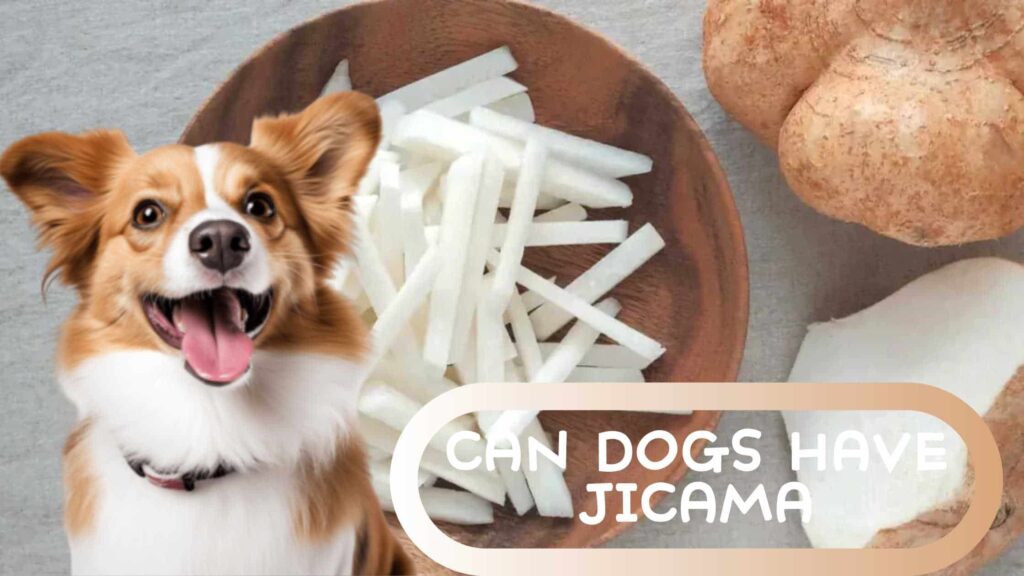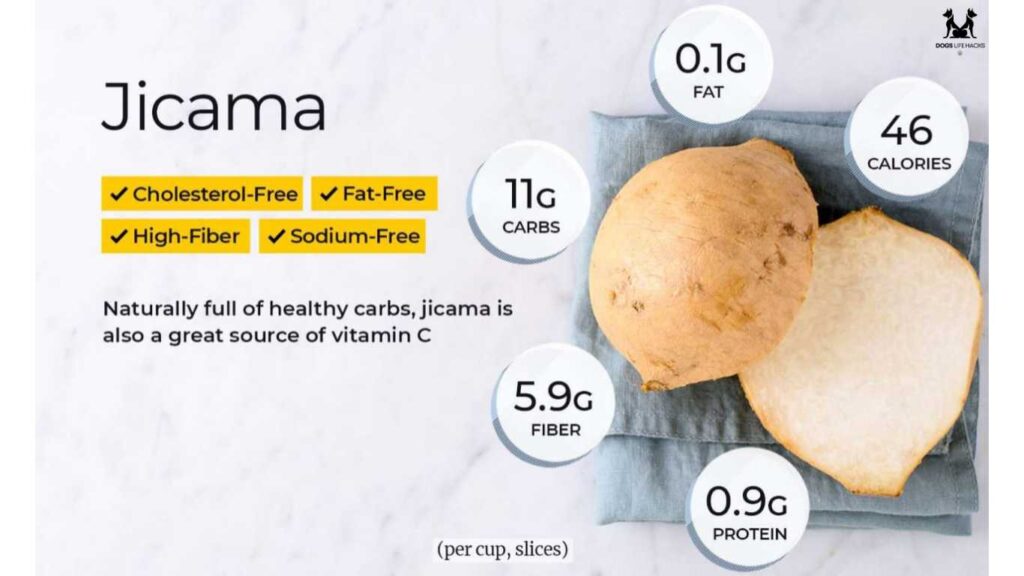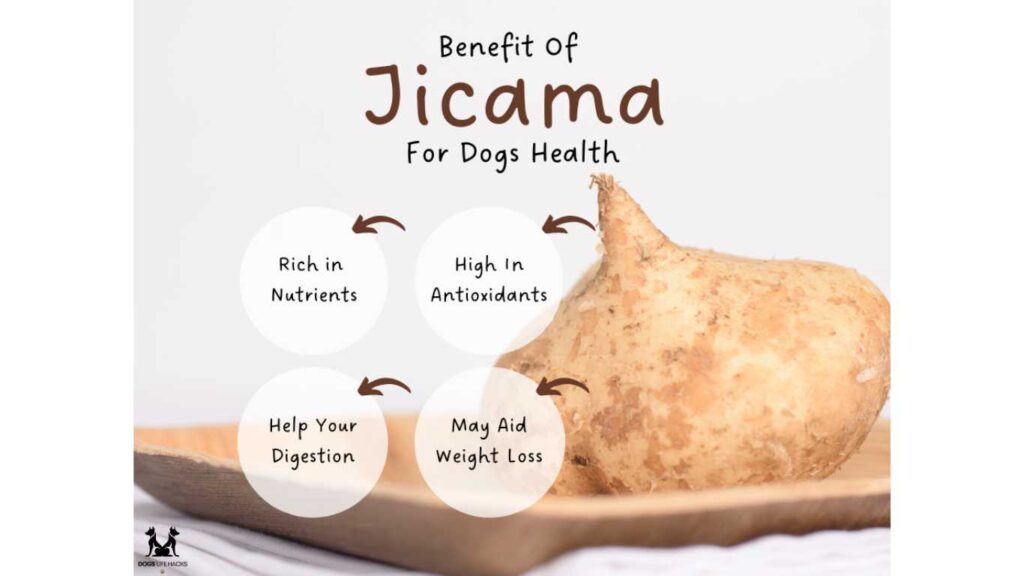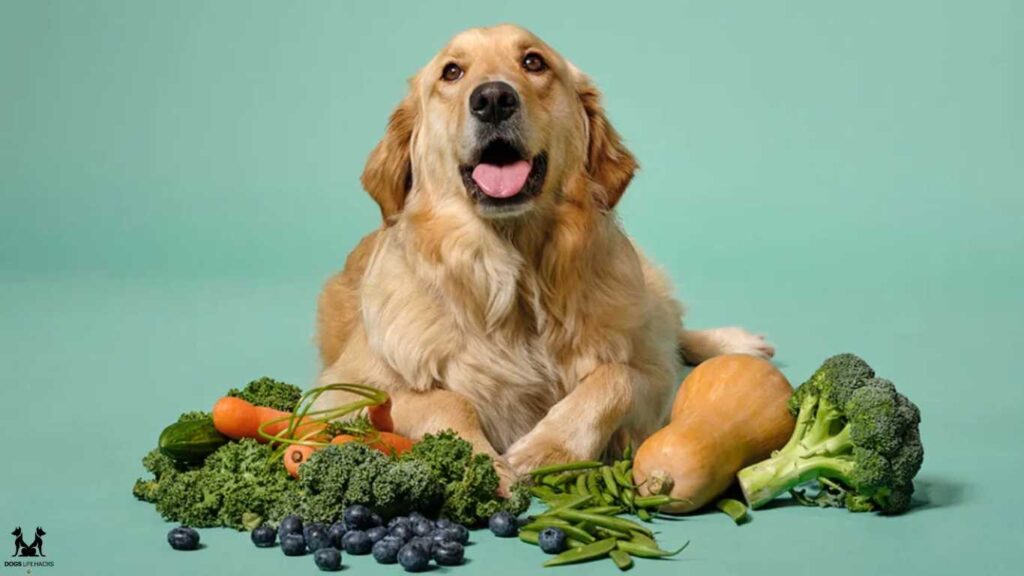Curious Can Dogs Have Jicama? Secrets You Need to Know!
As a dog owner, you might be worried about the safety and health benefits of various human foods for your dogs. This amazing food is jicama, a root vegetable known for its light, crispy texture.
Thus, the question is can dogs have jicama? This question will be answered in detail in this article and to make it easy for you, this article contains a rich resource of information about this topic.

What is Jicama?
Jicama is known also as the Mexican yam bean or Mexican turnip, and it is a starchy root vegetable that is considered to be a component of the diet in Central America. It has a crispy texture that is slightly sweet, and that is why it is usually used in salads and as a snack.
Why “Can Dogs Have Jicama” Matters
Awareness of the compatibility of jicama with a dog’s diet is important to the pet owners to avail variety and healthy diets for the canine companions. This question is important because not all the foods that people consume are good for dogs or even harmless, they can be toxic.
Nutritional Profile of Jicama

Vitamins and Minerals
This rooting vegetable contains various vitamins and minerals such as vitamin C, folate, potassium, and magnesium among others. These nutrients have specific importance for the general health of the body and its parts.
Dietary Fiber
Jicama is also one-of-its-kind in the sense that it has a low glycemic response, and is laden with dietary fibers. Fiber also helps in digestion, is good for gut health, and can prevent constipation among the vie as evidenced in the following ways.
Low-Calorie Content
Another plus to incorporating jicama in your dog’s diet is the low-calorie count and that is why it can be used as a snack in case the dog needs to shed some pounds. It gives a good satisfying snap and does not burden their system with the extra unwanted meal calories.
Can Dogs Have Jicama?
General Safety Considerations
Strengths and weaknesses are necessary when evaluating if it is safe for dogs to consume jicama. Specifically, jicama is not toxic to dogs, but the pet should not indulge in large amounts of this root vegetable.
Toxic Parts of the Plant
However, it is important to understand that although the flesh is non-toxic for dogs the leaves, seeds, as well as stems contain rotenone which is an insecticide. This should, however, only be served to your dog to their flesh portion.
Health Benefits of Jicama for Dogs

Digestive Health
Because of its high fiber content, jicama can on the diet help in digestion in dogs. Possibly, it could aid in the correct functioning of the bowels to prevent conditions such as constipation.
Antioxidant Properties
Jicama is considered rich in antioxidants and thus assists in the fighting of oxidative stress in dogs. Thus, antioxidants are quite important in the preservation of healthy cells and the prevention of illnesses.
Weight Management
Since jicama contains very few calories, it is also suitable for use as a snack for dogs that are on a low-calorie diet. It will enable people to take a delicious snack and at the same time avoid the accumulation of fats in their bodies.
Potential Risks and Precautions
Few dogs may show intolerance to jicama, although this is not a common occurrence. I also found information on how to tell that your dog is allergic to the food you are feeding it and this includes itching, swelling, or difficulty in breathing.
Overconsumption Concerns
However, if your dog gorged themselves on jicama, they will be at risk of suffering from gastrointestinal problems such as diarrhea and upset stomach condition. However, as with any change to your dog’s diet, moderation should be applied when incorporating any new food into your dog’s diet.
How to Introduce Jicama to Your Dog’s Diet
Serving Size Recommendations
Before using it as one, when adding this vegetable to your dog’s diet, it is recommended that you first use small portions to assess your dog’s reaction to it. Start with a couple of small cubes, particularly when it is your first time to introduce the game and your dog is a small breed.
Preparation Tips
First, you need to wash jicama’s skin well, and then peel it off to make it small and easier to handle pieces. No seeds or stems should be included because they can be toxic.
Gradual Introduction
Gradually incorporate jicama in the diets of dogs to be provided to them. It is advisable to first use a little amount and as time goes by, and the dog accepts it, slowly introduces increased amounts.
Signs of Adverse Reactions
Gastrointestinal Issues
Jicama may cause diarrhea or vomiting in your dog, therefore do not feed your dog with it again and seek veterinarian advice.
Behavioral Changes
If your dog seems to be reduced in her activity level or is easily agitated after consuming jicama, then this might not be good for her.
Alternatives to Jicama for Dogs

Other Safe Vegetables
Incidentally, if your dog does not handle jicama well, other vegetables are allowed in dog diets that you can provide him. Carrots, cucumbers, and sweet potatoes are good examples of what can be eaten as replacements.
Comparing Nutritional Benefits
Said nutrients include: Every vegetable contains nutrients that are unique to it. For example, carrots are packed with vitamin A, especially from beta carotene and cucumbers are refreshing, containing less energy.
Expert Opinions About Can Dogs Have Jicama
Veterinarian Recommendations
Many vets are on the same line that giving jicama to your dog is not bad as long as you do not overdo it. According to them, the edible parts of the plant are the flesh and those with high value suggest that one should abstain from consuming any other part of the plant.
Pet Nutritionist Insights
Dog nutritionists support adding different vegetables to the diet concerning their positive effects on the animal’s body. Because of the raw and coarse fiber quality and low-calorie count, they’ve intimated that jicama can be a good addition.
Conclusion of Can Dogs Have Jicama
All in all, it is essential to note that although jicama can be quite beneficial to the health of your dog if well prepared and given in the right portion, it is not advisable to give your dog whole jicama. Its impressive health benefits include the following; it enhances digestion, has an anti-oxidative effect, and helps to manage body weight. But first, it should be taken in small quantities, and one needs to observe the results on the dog’s body and health. It is always recommended that you speak to the vet before incorporating new food into your dog’s diet.
FAQs About Can Dogs Have Jicama
Is jicama ok for dogs to eat?
Yes, it is safe for dogs to be fed with the inside white part of the jicama provided it is chopped in the right manner and the portions offered to the dog are moderate. Caution: unfortunately, the skin, seeds, leaves, and stems of this plant jicama are toxic to dogs.
What kind of vegetables dogs Cannot eat?
Onions, leak, scallions and garlic. grapes and raisins. tomato leaves stem or green young tomatoes. green potatoes, leaves, and stems of the potatoes.
What are the benefits of eating jicama?
It is a crunchy tuberous root product that is usually eaten raw and contains antioxidants, fiber, and vitamin C, and its intake might benefit the prevention of cardiovascular issues, diabetes, obesity, and osteoporosis but more studies are required.
Is jicama a fruit or a vegetable?
Jicama is a tuberous vegetable or rather a root vegetable with hard brown outer skin and white inside. tough as an apple but not as sweet. It’s the kind of thing you could liken to a potato- only not nearly as heavy on the carbohydrate content. Primarily, the starchy tuberous root called jicama is derived from the plant that tends to develop mostly in Mexico and Central America and creeps on a long vine.
What are the disadvantages of eating jicama?
What can be the consequences of food intake of jicama? That is why there is sometimes an undesired reaction manifested in allergies if the individual is sensitive to some components contained in it. Earache, skin rash especially at night, and itching of the mouth and nose are usual symptoms in children. The copious amounts of fiber found in it will lead to gaseous build-up in the stomach hence causing bloating.
More Food & Health Guide
Irresistible No Bake Dog Treats Your Furry Friend Will Love!
Unleash the Best Bone Broth For Dogs-Optimum Nutrition
Can Dogs Have Sunflower Butter Safe Treat or Hidden Danger?
Causes of Dog Shaking Head | Symptoms, and Treatment Guide
Effective Dog Bladder Infection Home Remedy For Quick Relief
Essential Bordetella Shot For Dogs & Kennel Cough Protection
Best Protein for Dogs To Boost Their Health Instantly
Discover Nutrient-Rich Dog Food With Fish for Stronger Pets
Deadly Hematochezia in Dogs: Causes, Symptoms, and Cure
How to Treat Dog Rash on Stomach? Causes & Quick Remedies
Wholesome Vegetable Dog Treats for a Happy, Healthy Pup
Delicious Peanut Butter Banana Dog Treats Your Pup Will Love
